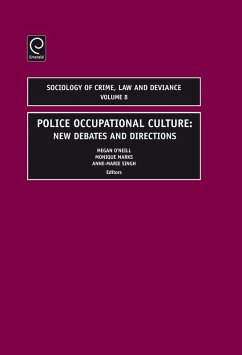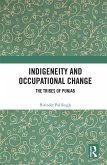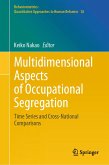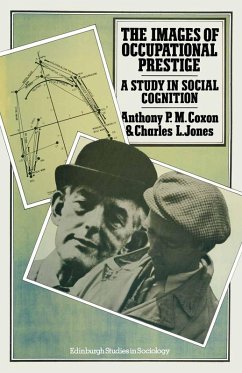The idea of police occupational culture or cop culture has been a source of academic interest and debate since research into policing began in earnest in the 1960s. Police culture has become a lens through which a number of aspects of the police and policing more broadly have been studied, including the use of discretion, police corruption, institutional racism, sexism and police reform. For the most part, these studies have been done in topical isolation from each other and have focused rather narrowly on Anglo-American state policing forms. Using studies from Australia, Britain, the United States, Africa and Canada, this book offers a contemporary look at police culture from an international perspective by questioning established silos in topics, by presenting new ways of thinking about police culture and suggesting forms that police culture is likely to take in the future.In revisiting the meaning of police culture in the light of key developments in the field of policing, including the pluralization of policing governance and delivery, new management practices and the increased diversification and representation within police organizations, the chapters in this book offer both explanatory and normative approaches to the topic. The chapters also point to new topics in police cultural studies, such as the impact of tertiary education opportunities on police culture, police unions as counter-cultural groupings, the coming together of private and public policing cultures, and the impact of new identity groupings on police organizational culture.Students and researchers in police and policing studies, crime and criminal justice, as well as police practitioners themselves, should find this volume of the "e;Sociology of Crime, Law and Deviance"e; series a particularly interesting read. It presents a timely reassessment of the new dimensions of police occupational culture Proposes a new schema for thinking and writing about policing culture. It considers aspects of the police occupational culture from an international perspective through including studies from Australia, Britain, the United States, Africa and Canada - one often neglected in Anglo-American research. It revisits the meaning of police culture in the light of key developments in the field of policing including the pluralization of policing governance and delivery; new management practices and the increased diversification and representation within police organizations.
Dieser Download kann aus rechtlichen Gründen nur mit Rechnungsadresse in A, B, BG, CY, CZ, D, DK, EW, E, FIN, F, GR, HR, H, IRL, I, LT, L, LR, M, NL, PL, P, R, S, SLO, SK ausgeliefert werden.









